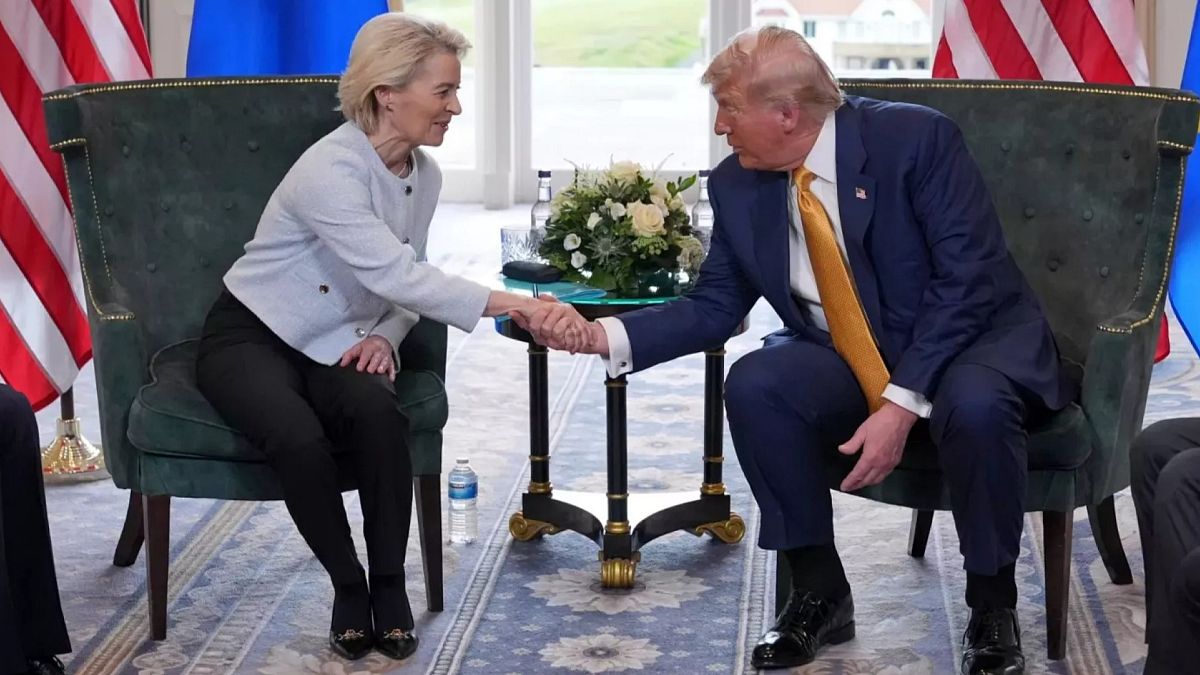- Joined
- Jul 1, 2023
- Messages
- 4,881
- Reaction score
- 6,714
An interesting take on the west's dependence on China for rare earth metals published in the Wall Street Journal, three main points stand out.
1. China played hardball over tariffs and Trump had to go cap in hand to get things moving again.
2. Ford actually halted production because of China's reaction.
3. Europe's dependence upon China for rare earths is far greater than its dependence upon Russia for energy.
Gideon Rachman writes in the WSJ, Trump’s brutally realist approach to int'l relations now seems to include the realization that China holds all the cards when it comes to the production of rare earths and other critical minerals.
China began to play its hand in earnest just after liberation day, Apr 2, when Trump announced punishing tariffs on most of the world, with China hit particularly hard. Two days later, China announced export controls on seven types of rare earths.
The effect on the world’s motor industry was dramatic and felt within weeks. Jim Farley, the CEO of Ford, admitted in early June that a shortage of rare earths used in magnets had forced his company to “shut down factories” temporarily. European manufacturers had similar problems.
Faced with this crisis, the Trump admin had to plead for the restrictions to be eased. A temporary agreement was reached in June. But if Trump raises tariffs to stratospheric levels again, Beijing will almost certainly reimpose strict export controls.
Beijing’s grip on critical inputs for western industry gives China a uniquely powerful hand in any trade war with the US. A Chinese threat to block the export of rare earths is a much more powerful card than a European threat to block the export of Gucci handbags. Even some of the weapons systems the US would rely upon in the event of a war with China rely on Chinese rare earths.
Europe’s green transition would also grind to a halt without a steady supply of Chinese critical minerals and rare earths. One prominent European politician confided, “Our dependence on Russia for energy is very mild compared to our dependence on China for critical minerals. We’ve bet everything on the green economy and China could shut us down.”
Rare earths are found all over the world. But it is China’s willingness to commit to the often filthy business of mining and processing critical minerals—and the rare earths that are a vital subset of them—that has given Beijing its near monopoly. As a result, the country is thought to mine around 60-70% of the world’s rare earths and control around 90% of their processing and refining.
There are signs of increased urgency in Washington and Brussels. Trump has also put pressure on Ukraine to hand over mineral rights, in return for US support. The EU’s Critical Raw Materials Act, which came into force last year, has set targets for reducing dependence on China. But, so far, the EU has no operational rare earth mines and only two major processing plants.
Overcoming environmental objections to processing could be even harder than gaining access to the mineral. A Solvay facility in France is set to expand. But following EU rules will raise production costs considerably.
One western security official says, “it’s taken more than 20 years to become this dependent on China. And it will take another 20 years to break the dependency.”
1. China played hardball over tariffs and Trump had to go cap in hand to get things moving again.
2. Ford actually halted production because of China's reaction.
3. Europe's dependence upon China for rare earths is far greater than its dependence upon Russia for energy.
Gideon Rachman writes in the WSJ, Trump’s brutally realist approach to int'l relations now seems to include the realization that China holds all the cards when it comes to the production of rare earths and other critical minerals.
China began to play its hand in earnest just after liberation day, Apr 2, when Trump announced punishing tariffs on most of the world, with China hit particularly hard. Two days later, China announced export controls on seven types of rare earths.
The effect on the world’s motor industry was dramatic and felt within weeks. Jim Farley, the CEO of Ford, admitted in early June that a shortage of rare earths used in magnets had forced his company to “shut down factories” temporarily. European manufacturers had similar problems.
Faced with this crisis, the Trump admin had to plead for the restrictions to be eased. A temporary agreement was reached in June. But if Trump raises tariffs to stratospheric levels again, Beijing will almost certainly reimpose strict export controls.
Beijing’s grip on critical inputs for western industry gives China a uniquely powerful hand in any trade war with the US. A Chinese threat to block the export of rare earths is a much more powerful card than a European threat to block the export of Gucci handbags. Even some of the weapons systems the US would rely upon in the event of a war with China rely on Chinese rare earths.
Europe’s green transition would also grind to a halt without a steady supply of Chinese critical minerals and rare earths. One prominent European politician confided, “Our dependence on Russia for energy is very mild compared to our dependence on China for critical minerals. We’ve bet everything on the green economy and China could shut us down.”
Rare earths are found all over the world. But it is China’s willingness to commit to the often filthy business of mining and processing critical minerals—and the rare earths that are a vital subset of them—that has given Beijing its near monopoly. As a result, the country is thought to mine around 60-70% of the world’s rare earths and control around 90% of their processing and refining.
There are signs of increased urgency in Washington and Brussels. Trump has also put pressure on Ukraine to hand over mineral rights, in return for US support. The EU’s Critical Raw Materials Act, which came into force last year, has set targets for reducing dependence on China. But, so far, the EU has no operational rare earth mines and only two major processing plants.
Overcoming environmental objections to processing could be even harder than gaining access to the mineral. A Solvay facility in France is set to expand. But following EU rules will raise production costs considerably.
One western security official says, “it’s taken more than 20 years to become this dependent on China. And it will take another 20 years to break the dependency.”




